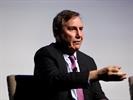Paul Holmes 14 Sep 2001 // 11:00PM GMT
The New York Times reported on Saturday that the nation’s largest corporations had already pledged more than $100 million for disaster relief efforts. DaimlerChrysler, Pfizer and General Electric have each pledged $10 million for the relief efforts. Three oil companies, Texaco, Chevron and Amerada Hess, have pledged $5 million each.
Such a commitment is particularly impressive given the fact that most economists believe the terrorist attacks on the United States will plunge not only this country but the rest of the western world into a recession. But it is also good business, not because of any plaudits the companies are likely to receive from customers or the public at large, but because contributing to the disaster relief efforts demonstrates that companies have been touched by this catastrophe the same way their employees have.
That’s why many companies have linked their philanthropic commitment to contributions by employees, promising to match any donation. Exxon Mobil, for example, made an immediate gift of $5 million, and promised to match employee, retiree, dealer, and distributor contributions on a three-to-one basis—estimating that the ultimate donation could be as much as $20 million.
“While no amount of money can alleviate the pain and suffering of the victims of these horrific acts, we hope these funds will help in the recovery process for the families affected by this tragedy,” said chairman and CEO Lee Raymond.
Many individual Americans were moved to act by the tragedies in New York, Washington, and Pennsylvania, by giving time to volunteer (see sidebar), by giving blood, and by giving money. Many who were not sure how to help in a way that would have the maximum impact were helped by their employers, large and small, who quickly organized philanthropic activities and found ways to get the donations to where they were most needed. In such a way, companies were able to demonstrate that they shared the shock and horror experienced by their employees, and address the feeling of helplessness experienced by so many in the wake of the tragedy.
But those companies were also, for the most part, extremely careful not to appear to be taking advantage of the situation by bragging about their largesse.
Lynn Casey, CEO of Minneapolis-based Padilla Speer Beardsley of Minneapolis, has been warning clients not to seek credit for their donations. “I put out an all-hands memo to our employees this morning, encouraging them to take a very prudent and low-key approach to this kind of initiative.” She advised employees to “make sure [clients’] hearts are in the right place—we want to discourage efforts where the primary motive is notoriety for the organization.
“The question is, would they put the same effort into the program if they knew they wouldn’t gain an ounce of recognition?”
For most companies, the answer to that question was yes. Many did not put out press releases announcing their donations. In many cases formal announcements were made only to inform employees, retirees and other constituents how they could make a donation through the company, or to encourage other companies to open their coffers.
DuPont pledged $5 million to the relief effort. The funds will be primarily earmarked for the education of the children of firefighters, police officers and other uniformed emergency personnel who lost their lives as a result of the attacks, although some will go to the Red Cross to meet immediate needs in both New York City and Washington, D.C.
“The magnitude of the human suffering inflicted on innocent people through these senseless acts is almost beyond comprehension,” said DuPont chairman and CEO Chad Holliday. “Our hearts and prayers go out to the victims and their families. We hope that these donations can in some small way help the loved ones of these heroic individuals as they begin the long and painful process of healing and moving on with their lives.”
Microsoft has pledged a $10 million donation to the rescue effort: $5 million in cash will be given to The September 11 Fund established by the United Way and the New York Community Trust; the other $5 million will take the form of technical services, which include providing consulting services, volunteer hours and software to the recovery effort.
The software giant is just one company that is providing products and services as well as financial support. AT&T, for example supplemented a $1 million cash donation by distributing $10 million worth of prepaid calling cards to relief workers in New York and Washington, while McDonald’s provided free meals for rescue workers in New York, Washington D.C., and Pennsylvania, as well as providing food to stranded passengers at airports in Chicago and Pittsburgh.
Many retailers, meanwhile, have offered their stores for community-based activities such as blood drives. At Sears Roebuck, corporate communications chief Ron Culp says, public relations and community relations personnel worked 16-hour days, distributing $1 million in immediate aid and providing volunteer relief workers with 1,000 ventilated air masks, 3,500 pairs of steel-toed work boots, and other items. The company also set up blood drives at many stores and at its corporate headquarters, and provided a way for customers to make donations to the American Red Cross at cash registers.
Says Culp, “I can honestly say we did everything out of the spirit of helping the victims and relief workers—that’s why it became such a positive rallying cry for our key constituents. I can now go home after reading nearly 100 employee e-mail messages sent to our CEO, all of which said they have never been more proud to work for Sears.”
Best Buy, meanwhile, made a quiet $100,000 donation to the American Red Cross and offered the use of its stores for blood drives. It will also allow customers to made donations to the Red Cross at check out counters. It won’t advertise the effort, except with signage at the counters. “We want to help,” company spokeswoman Joy Harris told the Minneapolis Star-Tribune. “We certainly don’t want to drive traffic to our stores.”
Meanwhile, the companies most directly impacted by the disaster generally scored high marks for their communications efforts. Both American Airlines and United Airlines responded quickly and efficiently to the disaster, mobilizing relief teams—although getting them to the crash sites was difficult because all air travel was shut down—and pledging immediate financial relief to the families of victims.
At 11.17, United Airlines issued a release confirming that one of its flights had crashed near Pittsburgh, and expressing its concern about a second flight.
Said CEO James Goodwin, “The thoughts of everyone at United are with the passengers and crew of these flights. Our prayers are also with everyone on the ground who may have been involved in today’s tragic events. United is working with all the relevant authorities, including the FBI, to obtain further information on these flights. In the meantime, in line with FAA directives, a worldwide ground stop on all our flights continues.”
American Airlines, meanwhile, issued a release confirming that it had lost—unlike United, it avoided the word crashed—two aircraft. “We are horrified by these tragic events,” said Donald Carty, chairman and CEO. “Our thoughts and prayers go out to the families of all involved.”
A little over half an hour later, United confirmed the crash of its second flight.
BSMG Worldwide and Burson-Marsteller were assisting American with its crisis communication, while United was working with Fleishman-Hillard.
Companies with operations at the World Trade Center, meanwhile, triggered their own crisis response plans quickly, with an understandable focus on internal communication—aimed at locating those who worked at the site of the disaster and getting information out to employees around the world concerned for the safety of their loved ones.
Morgan Stanley, with 3,700 employees in the World Trade Center complex, used its Discover Card call centers to try to reach missing employees, many of whom went home immediately after the evacuation. By Wednesday evening, it still had 500 employees unaccounted for, but by the weekend, the company confirmed that all but 15 of its personnel had been accounted for.
The company quickly set up its own relief fund to benefit Morgan Stanley employees, and “the firefighters, police and emergency medical personnel who have worked so tirelessly and successfully on their behalf.” The firm made a $10 million donation to disaster relief, and promised to match employee contributions dollar for dollar.
“In times like these, we are reminded how much we share with others and how much we depend on others,” said chairman and CEO James Purcell. “Our deepest thanks go to the firemen, police and rescue workers. And our prayers are with them and the families of all the victims.”
There was less good news to report at Cantor Fitzgerald, the trading firm that occupied floors 101 to 105 of the north tower. Only 300 of the 1,000 Cantor Fitzgerald employees who work at the World Trade Center survived, and those were all people who had not in the office at the time of impact, according to chairman Howard Lutnick.
“They may have been walking in, they may have been near the elevator, they may have been five minutes late, they may have been on vacation or out,” said Lutnick. “But I don't know of a single one of my employees who got down. Zero.”
The company, working with Edelman Public Relations, set up a website that provided a list of employees who were confirmed safe, and set up call centers for employees, families and friends. It also set up a counseling and support center at the Pierre Hotel in Manhattan and established a relief fund “to provide emergency, short-term financial assistance, emotional and mental health support, plus ongoing assistance for things like childcare, college tuition and long-term health care in the difficult months and years ahead.”
While the terrorist attacks happened thousands of miles from Hollywood, their impact was felt there too. Movie studios were quick to pull products that hit a little too close to home. Touchstone announced that the Tim Allen comedy Big Trouble, which features a scene involving a plane, would be shelved indefinitely while Warner Bros. said its thriller Collateral Damage, starring Arnold Schwarzenegger as a man trying to avenge the death of his family after the terrorist bombing of a Los Angeles skyscraper, would not be released this year. With the vast majority of companies responding admirably to the crisis, the few cases of inappropriate behavior were striking—and quickly condemned. The most obvious example involved gas stations, mainly in the Midwest, that increased prices to as much as $5 a gallon in the wake of the disaster, despite the fact that it had no effect on gasoline supplies and that refiners did not increase their prices. Illinois attorney general Jim Ryan filed suit against the owner of 13 Illinois service stations, Casey’s General Store, calling the price gouging “despicable.” Ryan said the actions violated the state’s Consumer Fraud and Deceptive Business Practices Act and that each violation carries a maximum fine of $50,000. The American Petroleum Institute was quick to denounce the price gouging, but that may not be enough. “Exxon and anyone else who has gas stations in the Midwest needs to tell people, if you do this we are not going to sell you any gas,” says Edelman. “We will cut off your supply if you behave this way.”
Microsoft, meanwhile, found itself facing an even touchier issue. The opening sequence of its Flight Simulator 2000 computer game, features dialogue in which one pilot warns another, “You just about crashed into the Empire State Building.” His colleague replies, “Hey, that would be cool.” As if that wasn’t enough, reports began to circulate that the suicide pilots involved in the attack might have used the software program for training purposes.
The company immediately agreed to remove the skyscrapers from future versions of the 17-year-old game, and said it would publish a downloadable patch to delete the conversation from current versions of the program. Some retailers in the United Kingdom—including Virgin Megastores—removed the game from their shelves.
The public relations profession, meanwhile, had its own moment of shame. A press release issued by Quantum Tech, a Memphis company that provides remote backup software and services for PCs and neyworks, sought to exploit the tragedy with the headline, "WTC Collapse Highlights Need for Quantum Tech’s Remote Backup.” The release suggested that the tragedy "illustrated the need for sending backups of valuable computer data offsite."
To the company’s credit, the release was removed from the wires within hours of its first appearance, and the Quantum Tech website carried the following message from company CEO Rob Cosgrove: “A press release was accidentally posted to the wire services by a new hire in our PR department without approval from supervisors. It was in poor taste, and he has been fired. The release was killed five minutes after posting. We're sorry for the outrage you probably feel over reading it, as we do.”


































.jpg)






.tmb-135x100.png)










